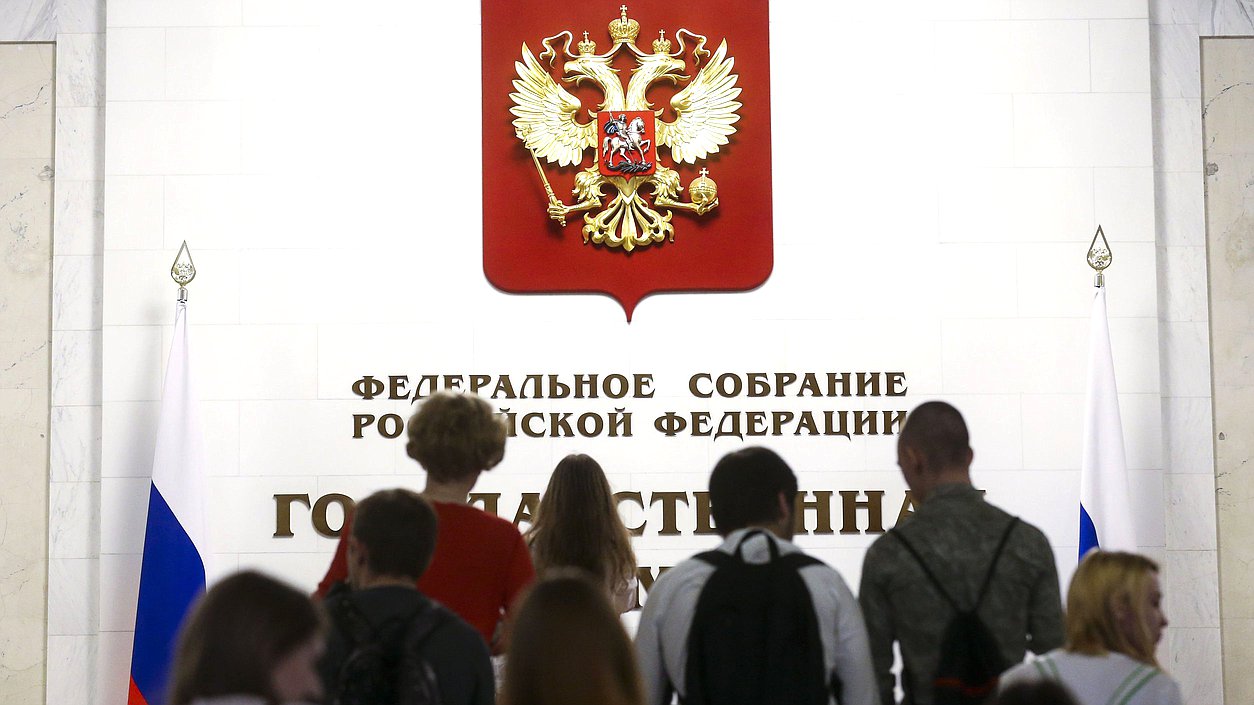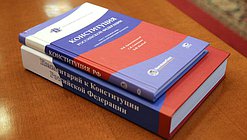
State power is exercised by the following bodies: the President, the Federal Assembly (the State Duma and the Federation Council), the Government and the courts. State power in the regions of the Russian Federation is exercised by regional state authorities.
Local self-government is not part of the system of state authorities, they are independent within their powers.
President of the Russian Federation
The President of the Russian Federation is the Head of State. He (she) is the guarantor of the Constitution of the Russian Federation and of human and civil rights and freedoms, he (she) adopts measures to protect the sovereignty of the Russian Federation, its independence and State integrity, and ensures the coordinated functioning and interaction of State government bodies. The President of the Russian Federation determines the basic objectives of the internal and foreign policy of the State and represents the Russian Federation within the country and in international relations. The President is the Supreme Commander-in-Chief of the Armed Forces of the Russian Federation.
The President is elected for six years by citizens of the Russian Federation. Any Russian citizen not younger than 35
years who has resided in the Russian Federation on a permanent basis for not
less than 10 years may be elected President.
The President may be impeached by the Federation Council only on the basis of charges of high treason or of another grave crime brought by the State Duma.
Federal districts
In order to increase the effectiveness of the activities of the federal government bodies and to improve the system of control over the execution of their decisions, federal districts, to which the President appoints his (her) Plenipotentiaries, were created in 2000.
Federal districts are not regions or another constitutional part of the administrative-territorial division of the Russian Federation.
Plenipotentiaries of the President are not district’s governors or chiefs of the heads of constituent entities (regions) of the district and they are just representatives of the President and members of the Presidential Administration. Plenipotentiaries of the President have no constitutional powers.
Executive power
Executive power is exercised by the Government of the Russian Federation. The Chairman (Prime Minister) is appointed by the President with the consent of the State Duma. In the event that the State Duma rejects the candidates for the post of Chairman of the Government three times, the President appoints the Chairman of the Government, dissolves the State Duma and announces new elections.
The Government consists of the Chairman of the Government of the Russian Federation, deputy chairmen and federal ministers. The Government heads the system of federal executive bodies: ministries, federal services and federal agencies. However, there are ministries, federal agencies and services that report directly to the President, for example, the Ministry of Internal Affairs, the Ministry of Emergency Situations, the Ministry of Foreign Affairs, the Ministry of Defense, etc.
Local Self-government
Local self-government in the Russian Federation provides for the independent resolution by the population of issues of local importance, and the possession, use and management of municipal property. It is exercised by citizens by means of referendum, elections and other forms of direct expression of their will, and through elected and other bodies of local self-government.

